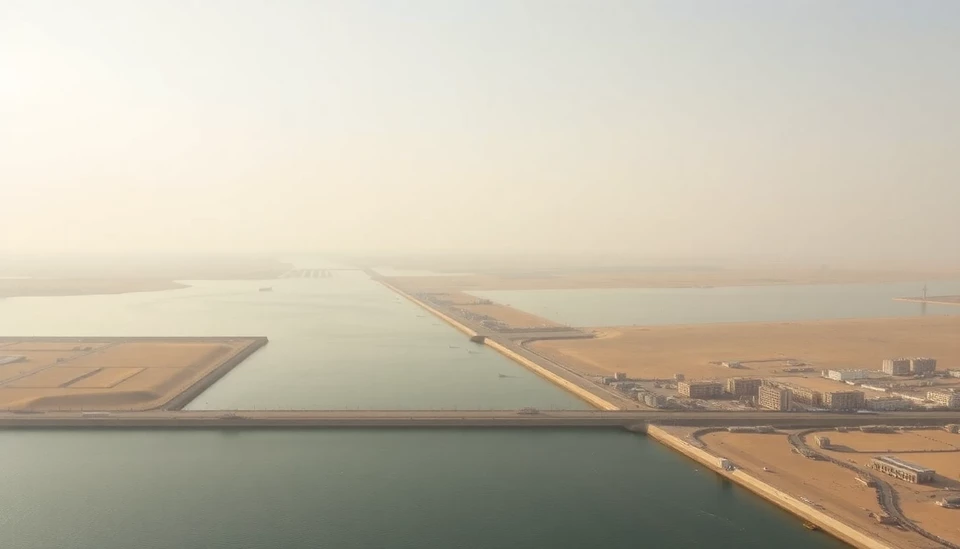
Recent interruptions in maritime traffic in the Red Sea have resulted in significant financial repercussions for Egypt, with estimated losses around $7 billion in Suez Canal revenues. The disruptions were primarily caused by a combination of severe weather conditions and increased shipping congestion, which have made navigation in these crucial waters significantly challenging.
The Suez Canal is a vital artery for global trade, serving as a shortcut between Europe and Asia. Typically, it generates substantial annual revenues for Egypt, with the government relying heavily on these funds to boost its economy. However, the recent events have disrupted the flow of maritime traffic, leading to delays and a subsequent downturn in shipping activities through the canal.
Reports indicate that the Red Sea disturbances included high winds and massive waves, which not only hindered the operation of vessel fleets but also instigated a wave of caution among shipping companies. As a result, some vessels opted for alternative routes, prolonging their voyages and increasing operational costs, while others faced operational delays that endangered timely deliveries of vital goods.
Moreover, the Suez Canal Authority (SCA) noted a steep drop in the number of ships passing through the waterway during this tumultuous period. While historically, the canal has averaged a flow of about 50 vessels daily, recent weeks have shown this number dwindle as shipping firms reconsider their routes due to the instability in the surrounding maritime environment.
This situation has raised concerns over Egypt's economic resilience, particularly as the country grapples with a multifaceted crisis including rising inflation rates and fluctuating foreign currency reserves. The loss of canal revenues poses a severe challenge, threatening government initiatives aimed at economic recovery, development projects, and the sustenance of public services.
In light of the ongoing struggles, the Egyptian government is exploring ways to mitigate these impacts, including potential emergency measures to stabilize shipping and improve safety protocols in the Red Sea. Experts have advised that addressing these maritime challenges head-on could be crucial for the economic wellbeing of the nation, emphasizing the need for an integrated response to enhance navigational safety and efficiency in this pivotal region.
As Egypt looks to navigate this financial storm, stakeholders in the shipping and trade sectors remain wary of the long-term impacts these disruptions may yield. The global logistics network heavily relies upon the Suez Canal, and any extended challenges could ripple throughout international trade, further exacerbating existing supply chain issues.
Moving forward, it will be essential for both the Egyptian authorities and shipping firms to collaborate closely to foster resilience against such disruptions. Meanwhile, the world will be watching closely, keen to see how Egypt can leverage its strategic position and resolve current predicaments to ensure that it remains a critical hub for global maritime trade.
In conclusion, the economic toll of the Red Sea disruptions serves as a stark reminder of the vulnerabilities within global trade routes and the necessity of robust contingency measures to safeguard trade interests.
#Egypt #SuezCanal #RedSea #GlobalTrade #MaritimeDisruptions #EconomicImpact #ShippingIndustry
Author: Daniel Foster




